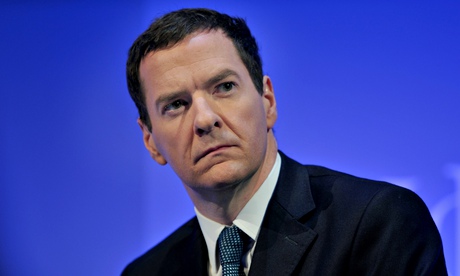
After his stunning speech on the eve of the Scottish referendum, Gordon Brown, by announcing that he will not stand for parliament again, has chosen to go out on a high. His speech was so powerful that even the occupants of Downing Street were bowled over, with some wondering whether he planned a return to mainstream politics.
That, apparently, is not to be. But there is still an outside chance that he might return to a prominent role. It depends on two big “ifs”. If Labour were to have the balance of power in the next election and if, for some reason, Christine Lagarde were to resign prematurely from her job as managing director of the International Monetary Fund, then Brown would be an obvious candidate to succeed her. The last three holders of the IMF post have, for different reasons, not served a full term.
Brown was sounded out twice for the job during his chancellorship, but naturally chose to remain where he was. When he was defeated in 2010, he was available, but there was no way that George Osborne was going to nominate him. No: George backed Lagarde, a move which had the French establishment rolling in the aisles: can you begin to imagine the French suggesting a British candidate?
Osborne had been hopelessly wrong in his reaction to the financial crisis, whereas Brown got it right, both in his leading role in the proposals for bank recapitalisation and his championing of the G20 fiscal stimulus agreed at the London summit of early April 2010.
Brown knew that it was a huge mistake to begin to withdraw the fiscal stimulus before recovery was well established. He was aware of the US precedent in the mid-1930s. He knew that to embark on a policy of austerity was the last thing required, but also the best possible way to dampen the animal spirits of entrepreneurs and induce a collapse of confidence.
So did Ed Balls. In a memorable speech in August 2010, Balls acknowledged that there should be a deficit reduction plan, “but only once growth is fully secured and over a markedly longer period than George Osborne is currently planning …Just think if Clement Attlee’s government at the end of the second world war had decided that the first priority was to reduce the debts built up during the war – there would have been no money to fund the creation of the NHS, no money to rebuild the railways and housing destroyed in the blitz, no money to fund the expansion of the welfare state.”
This was a powerful point. We did not pay the final instalment on our wartime debt for 50 years. The financial crisis was the peacetime equivalent of the economic cataclysm resulting from the second world war. Osborne’s policy of imposing austerity and budget cuts on an economy that was actually recovering was a catastrophic error.
The austerity panic propelled the economy back into depression; and, far from using public spending as a countervailing force against the cutbacks in private sector investment, the coalition’s budget cuts served to aggravate the crisis.
This year’s Reith lecturer, Dr Atul Gawande, speaks of the twin problems of ignorance and ineptitude that can beset medical practice. This applies also to economic policy.
Osborne, on the verge of his last autumn statement before next May’s election, has ended up with the worst of both worlds: he is being widely criticised, indeed derided, for having failed lamentably to achieve his target of eliminating the budget deficit during the lifetime of this parliament. Yet the austerity that he introduced so dramatically, epitomised by the emphasis on premature deficit reduction, has brought us the slowest economic recovery on record, and deep dissatisfaction all round with the depressed state of living standards.
There are commentators who place their faith in the Bank of England’s growth forecasts, and the belief that average earnings will finally take off after a long period of falling and then stagnating. Yet, even if they do, the starting level is so low that Osborne is hardly going to be in a position to repeat that dreadful phrase “job done”.
And what does our imperturbable chancellor promise if the government is re-elected? More of the same: austerity for the poor and public services, and tax cuts for the better off. But austerity fatigue is setting in: even the man responsible for control of public spending, Treasury chief secretary Danny Alexander, has made it plain that enough is enough, and the Conservative plans are “eye-wateringly unfair on the working poor, who will pay the highest price.”
The coalition has led this country into an austerity trap. No wonder the Conservatives are worried that Ukip may unseat them.
Talking of which: what is the Ukip policy on immigrant footballers? Are they planning to repatriate most Premier League players and replace them with White Van Men? We should be told!

